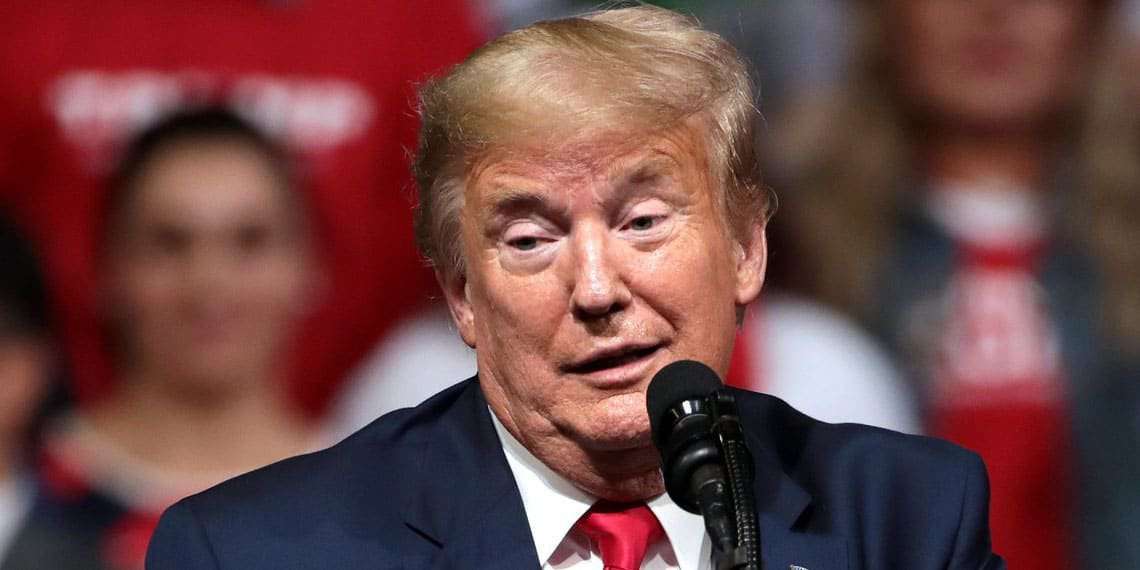When it comes to the false claim that vaccines cause autism, Republicans tend to be more swayed by Donald Trump than scientists, according to new research published in the journal Health Communication. The study indicates that politicians can have a significant influence on citizens’ science beliefs.
“I was interested in the effects of political leaders, who are not necessarily health experts, on partisans because we have already witnessed the tragedy in the context of climate change in the United States,” explained study author S. Mo Jones-Jang, an assistant professor at Boston College.
“Scientists and literature attribute the divided public belief or the popularity of climate change skepticism in the United States to elite (politicians) divisions about the topic. I was highly concerned that politicians may generate certain negative outcomes in the vaccine-related context.”
Mo and his colleagues asked 648 participants to carefully read an article about the vaccine-autism controversy. The participants were randomly assigned to read one of four different versions of the article: one cited Donald Trump claiming there was no vaccine-autism link, one cited a scientist claiming there was no vaccine-autism link, one cited Trump claiming there was a vaccine-autism link, and one cited a scientist claiming there was a vaccine-autism link.
The researchers found that Democratic and Independent participants tended to align their vaccine beliefs with the opinion of the scientist, regardless of whether the scientist was for or against vaccines, but were not influenced by the opinion of Trump. Among Republican participants, in contrast, Trump’s opinion had a greater impact than the scientist’s opinion.
“The key finding is that partisans are easily influenced by their political leaders about any given topic, including vaccine beliefs — although political leaders’ opinions are not necessarily accurate or scientific,” Mo told PsyPost. “Political leaders should be careful about expressing their opinions about health/science areas as some partisans blindly follow them. This tendency was particularly pronounced among Republicans.”
A second study with another 604 participants followed a similar methodology. But rather than exposing participants to either the opinion of a scientist or the opinion of a political figure, both were presented in the same article. “For example, one group read a story in which scientists denied the vaccine risk but Trump raised concerns about vaccine risk. The other group read a story in which Trump denied the vaccine risk but scientists warned of vaccine risk,” the researchers explained. A third group — the control condition — read an article unrelated to the vaccine-autism controversy.
Mo and his colleagues again found that Republicans tended to follow Trump’s opinion rather than the opinion of a scientist. But all participants in the two experimental conditions — even Democrats — displayed reduced intentions to vaccinate compared to the control group.
“This result is interesting because it suggests that exposure to the controversy itself triggers concerns about vaccines across all partisans,” the researchers said.
“Ordinary individuals do not have the ability and motivations to assess health risks for themselves. Hence, we are bound to trust and follow experts. The problem is, we often assume our political leaders are always correct and accurate, which is not true,” Mo explained. “Politicians should be careful when expressing their opinions on health issues, particularly confronting the unprecedented pandemic.”
The current study focused on false claims surrounding MMR (Measles, Mumps, and Rubella) vaccines. But the research has taken on new importance amid efforts to end the COVID-19 pandemic. Future studies should specifically address “how COVID-19 vaccination has been politicized and how partisans would respond to their leaders’ positions,” Mo said.
The study, “The Politicization of Health and Science: Role of Political Cues in Shaping the Beliefs of the Vaccine-Autism Link“, was authored by S. Mo Jones-Jang and Chris Noland.

420_suck_it_deep on February 8th, 2021 at 10:46 UTC »
how can we be sure that donald trump doesn't just follow the republicans opinions? not the other way round...
you know, causation and all that
walkerintheworld on February 8th, 2021 at 06:44 UTC »
I found it interesting that Democrats' opinions were also swayed by exposure to Trump. I wonder what the impact on Democrats would be if you held a Democrat leader's opinion compared against a scientists' opinion on an unfamiliar scientific topic (maybe GMOs or something).
Aleyla on February 8th, 2021 at 02:04 UTC »
I can’t help but feel that this study is a little late. Maybe if it had been published last summer it might have been relevant.